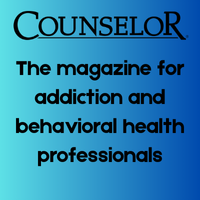Legislative Alert: Rhode Island Naloxone Access, Good Samaritan Act, and Chemical Dependency Professionals
November 1, 2018
On July 2, 2018, Rhode Island Governor Gina Raimondo signed a number of bills relating to the addiction industry.
HB 8313/SB 2930: Naloxone Access
HB 8313, titled "Naloxone Access", was introduced on June 13, 2018, by Representative David Bennett and four other Representatives. Meanwhile, the Senate version of the bill, SB 2930, was introduced on May 24, 2018, by Senator Joshua Miller and four other Democratic Senators.
The bill amends Section 21-28-1.02 of the General Laws in Chapter 21-28 entitled "Uniform Controlled Substances Act". It requires the Director of the Department of Health to develop best practices for co-prescribing opioid antagonists to patients who are prescribed opioid analgesics. The bill also adds the definition of 'co-prescribing', 'opioid analgesics', and 'opioid antagonist'.
The law took effect upon passage.
SB 3004: The Good Samaritan Overdose Prevention Act of 2016
SB 3004, titled "The Good Samaritan Overdose Prevention Act of 2016", was introduced on June 22, 2018, by Senator Sandra Cano and four other Democratic Senators.
The bill amends Section 21-28.9-3 of the General Laws in Chapter 21-28.9. It provides authority to state and municipal law enforcement personnel and emergency medical personnel to provide and transfer an opioid antagonist under good faith. This act states that the person providing the antagonist shall not be subject to civil liability or criminal prosecution as a result of administering the drug.
The law took effect upon passage.
SB 2225: Powers and Duties -- Chemical Dependency Professionals
SB 2225, titled "Powers and Duties -- Chemical Dependency Professionals", was introduced on February 1, 2018, by Senator Stephen Archambault and three other Democratic Senators.
The bill amends Section 40.1-1-13 of the General Laws in Chapter 40.1-1 entitled "Department of Behavioral Healthcare, Developmental Disabilities and Hospitals". It gives the Department of Behavioral Healthcare, Developmental Disabilities and Hospitals (BHDDH) with the power and duty to provide a list of licensed chemical dependency professionals (LCDP) and licensed chemical dependency clinical supervisors (LCDCS) for use by state agencies, including the district court and superior court and the division of probation and parole for referral of individuals requiring substance use disorder treatment.
The law took effect upon passage.

A national membership association that provides education and advocacy for those in the behavioral health and addiction treatment industries.
We are the leading and unifying voice of addiction-focused treatment programs.



